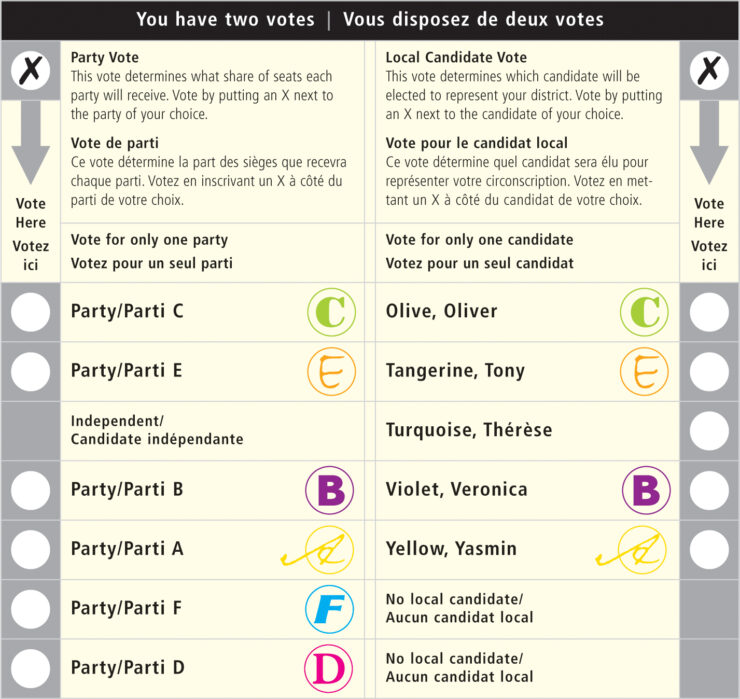Why Canada desperately needs election reform
Dan LeRoy | Fulcrum Staff
LESS THAN TWO out of every five Canadians who went to the ballot box in the last federal election voted for the Conservative party, and only 61 per cent of Canadians even bothered going to the polls. According to Elections Canada, this means that less than one out of four Canadians voted Conservative. The mandate to govern that Stephen Harper stated he had been given by the people of Canada in May 2011 really only reflects the votes of a fraction of Canadians. Some majority government.
Our current electoral system needs change. It’s bad enough that we have a government in power supported by less than 25 per cent of the population. But the worst part about our current electoral system is how it discourages Canadians from voting.
How many times have you heard people say they’re not voting because it doesn’t even matter? Or how about the many Canadians who disregard their vote because they feel it won’t make a difference in their riding? Take a look at Ottawa. The Ottawa-Vanier riding (previously known as Ottawa East), in which the University of Ottawa is situated, has been Liberal since it was established in 1935. It probably isn’t unreasonable to assume Liberals will win there in the next election, and the next, and the next. If you live in the Ottawa-Vanier riding and don’t vote Liberal, it could be hard to have your voice heard. Not exactly a reality which inspires people to take to the polls.
An electoral system that encourages voter apathy is hardly what our country should strive for. So what’s the solution? Reform.
One route for electoral reform would be to switch to proportional representation. Essentially what this means in its absolute form is that we would abandon all ridings and just vote for a party. When the poll results arrive, each party would be rewarded the number of seats that matches the percentage of Canadians who voted for them. This way, a Liberal candidate in Calgary or a New Democrat candidate in Ottawa-Vanier would have their vote count as much as if they were from any other part of the country. Empowering.
Going this route might strip away the idea of local Members of Parliament (MPs). The work many MPs do for their community is tremendous. Understandably, people are afraid of losing the community aspect of politics that the current model fosters. But it doesn’t have to be that way.
A hybrid model may just work best to get everyone out on election day: mixed proportional representation. The number of ridings would be cut from 338 to around 150. On average, MPs would represent about 230,000 Canadians each—half of what congressmen and women represent in the U.S. Another 100 MPs would be elected as a proportion of the total national vote. The prime minister would also be elected this way.
Through this system, we would all be able to ensure that the politicians we like stay in office. By checking off the best politicians on the ballot, we could keep the best politicians in office. For those afraid of switching systems, worry not: Canada wouldn’t be the first to adopt this electoral scheme; the Netherlands has a similar model. Furthermore, each party would have to have at least five per cent of the voting results to have a seat in the House, so that we don’t end up with a fragmented Parliament consisting of many different parties.
How do we make this change happen when it would seem that our current government has no interest in reform? Let’s not forget, our current electoral model gave the Conservatives that “majority mandate” Harper spoke of. Andrew Coyne from Maclean’s magazine advocates the idea that has been suggested by people like Joyce Murray, a Liberal party member, and Nathan Cullen of the NDP: putting just one candidate in each riding. Coyne continues that under such a formula, once a progressive government is formed, their main goal would be electoral reform. Once electoral reform is achieved and we ditch the archaic system of first past the post, Canada will finally be able to truly call itself a democratic country.




